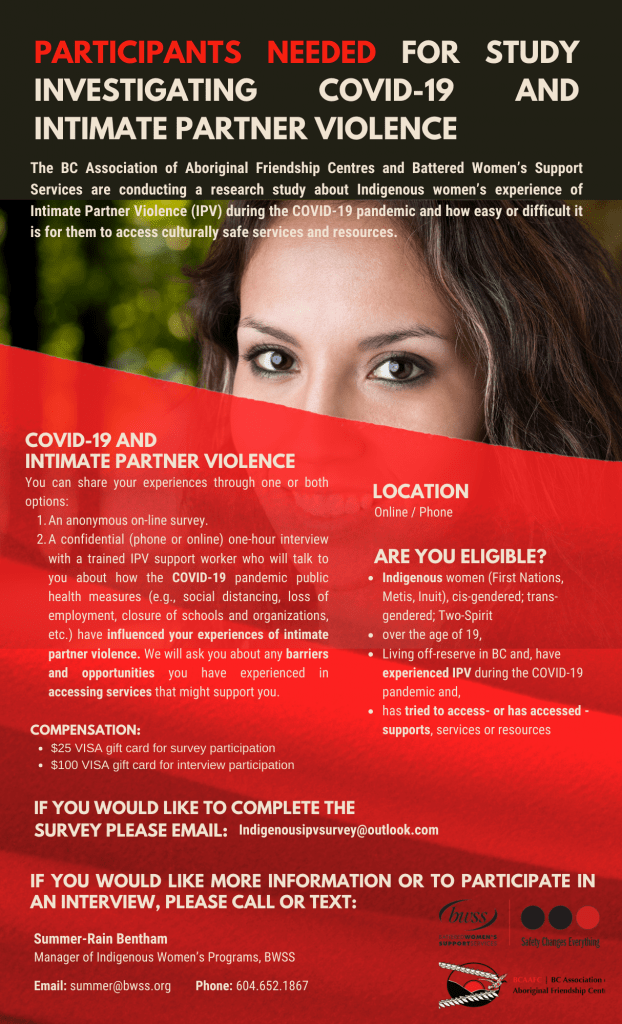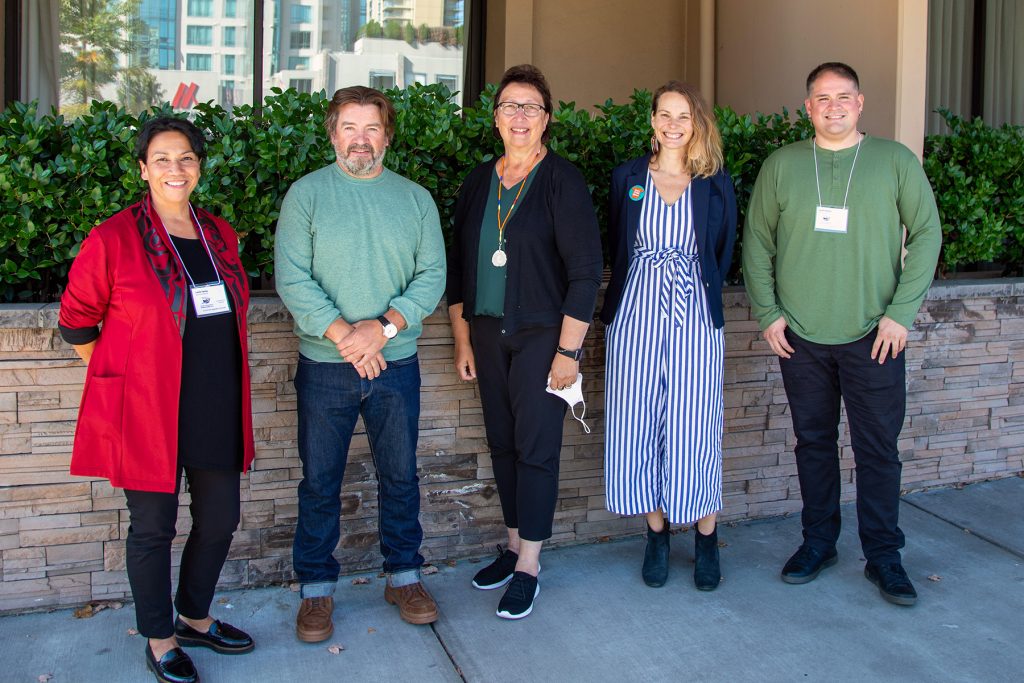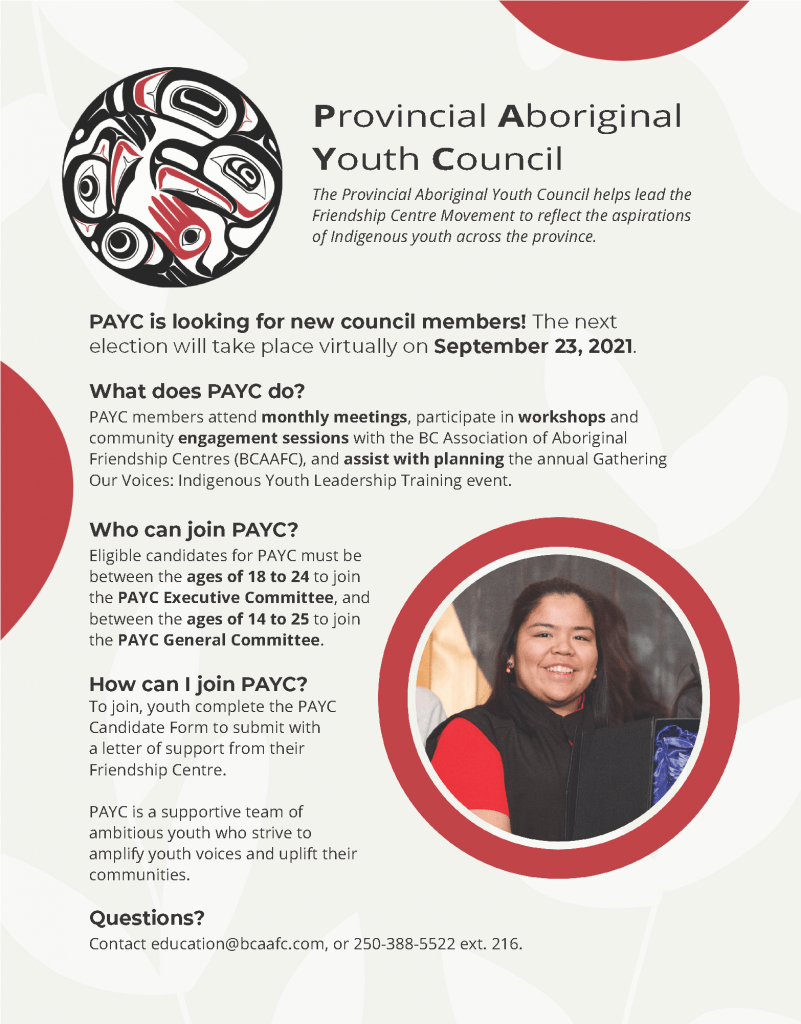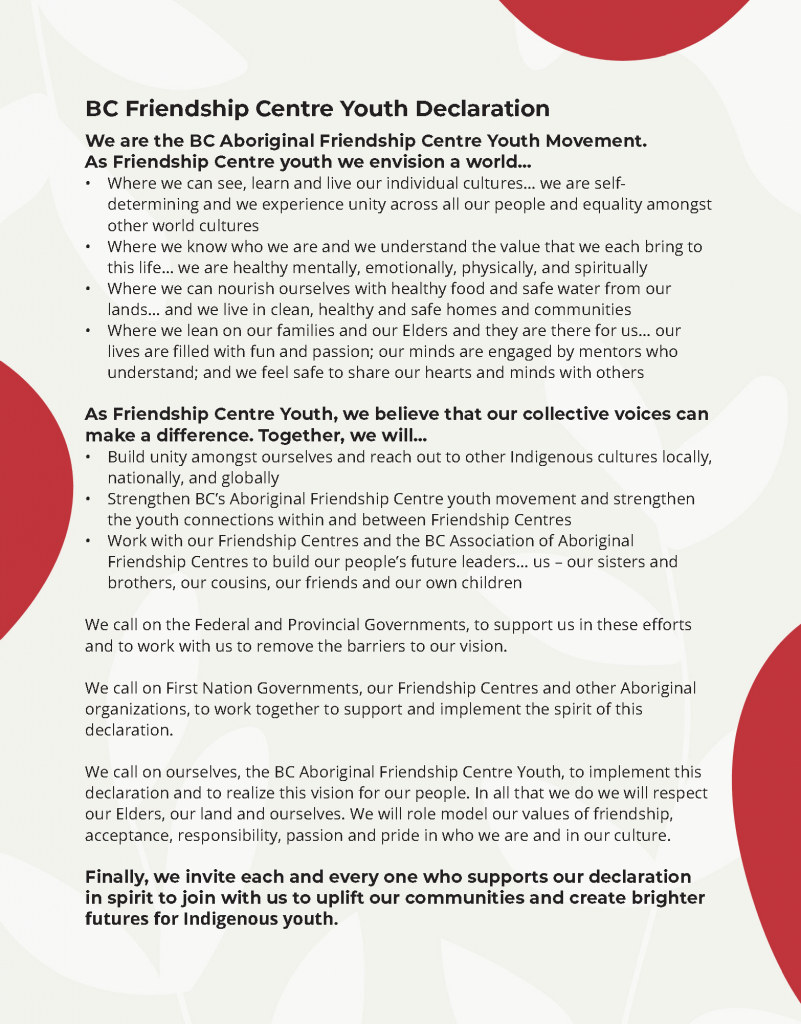

March 24, 2022
We acknowledge the Songhees, Esquimalt and WSÁNEĆ peoples, the traditional keepers of this land, for allowing us to work, play, and reside on their traditional and unceded territory.
BCAAFC welcomes today’s news of a $34-million Recovery and Resiliency Fund for non-profit groups in the province, which includes $5 million specifically allocated to Indigenous-led organizations.
There are 25 Friendship Centres that deliver crucial programs and services to the estimated 85% of Indigenous people in B.C. that live off-reserve or in urban areas. With higher service costs and more demand on BC Friendship Centres due to the pandemic and recent environmental disasters, we applaud this announcement and look forward to more details and engagement with government partners on administering these funds in the near future.
For more information, visit: https://news.gov.bc.ca/releases/2022SDPR0015-000420
Watch recording of today’s funding announcement:



